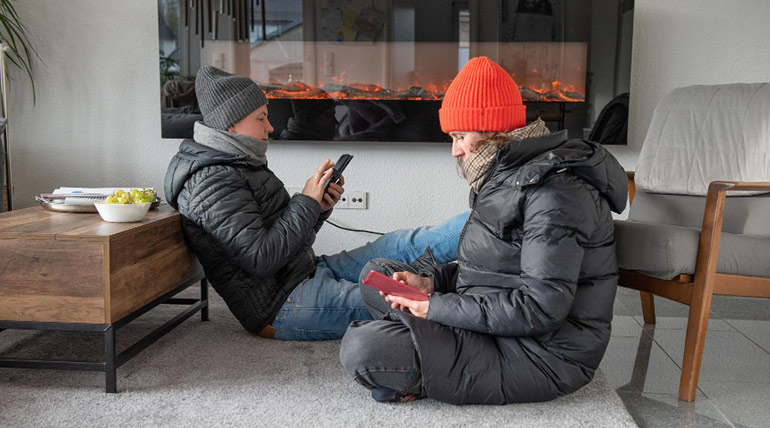
August 24, 2024
Choosing the right HVAC system is essential for maintaining a comfortable and energy-efficient home, especially in Canada, where the climate can range from freezing winters to hot summers. With the right HVAC solutions, you can reduce energy consumption, lower utility bills, and minimize your carbon footprint. Here’s a guide on how to choose energy-efficient HVAC solutions for your Canadian home.
1. Assess Your Home’s Heating and Cooling Needs
Before selecting an HVAC system, it’s crucial to assess your home’s specific heating and cooling needs. Factors such as the size of your home, insulation levels, window quality, and the local climate all play a role in determining the right system. An HVAC professional can conduct a thorough assessment, including a heat load calculation, to determine the appropriate size and type of system for your home.
2. Look for High SEER and AFUE Ratings
When choosing an HVAC system, pay attention to the Seasonal Energy Efficiency Ratio (SEER) for cooling systems and the Annual Fuel Utilization Efficiency (AFUE) for heating systems. These ratings measure the efficiency of the equipment:
- AFUE Rating: The higher the AFUE rating, the more efficient the furnace. An AFUE of 90% or higher is considered energy-efficient, meaning the furnace converts 90% of the fuel it consumes into heat.
- SEER Rating: The higher the SEER rating, the more energy-efficient the air conditioning system is. In Canada, look for systems with a SEER rating of 14 or higher.
3. Consider Energy-Efficient Heat Pumps
Heat pumps are an excellent option for Canadian homes, offering both heating and cooling in one system. Modern heat pumps are highly energy-efficient, using electricity to transfer heat rather than generating it through combustion. Look for models with high Heating Seasonal Performance Factor (HSPF) ratings for heating efficiency and high SEER ratings for cooling efficiency.
4. Explore Geothermal Systems
Geothermal heat pumps are among the most energy-efficient HVAC options available. These systems use the earth’s stable underground temperature to heat and cool your home. While the upfront cost is higher than traditional HVAC systems, geothermal systems can offer significant savings on energy bills over time and are ideal for environmentally conscious homeowners.
5. Choose a Programmable or Smart Thermostat
A programmable or smart thermostat allows you to control your HVAC system more precisely, adjusting the temperature based on your schedule. This helps reduce energy consumption by heating or cooling your home only when needed. Smart thermostats can be controlled remotely via a smartphone, learn your preferences over time, and even provide energy usage reports.
6. Insulate and Seal Your Home
No matter how efficient your HVAC system is, your home must be well-insulated and properly sealed to maximize energy savings. Poor insulation and air leaks can cause your HVAC system to work harder, increasing energy consumption. Ensure your attic, walls, windows, and doors are adequately insulated and sealed to prevent heat loss in winter and keep cool air inside during summer.
7. Opt for Zoned HVAC Systems
Zoned HVAC systems allow you to control the temperature in different areas of your home independently. This means you can heat or cool only the rooms you use, rather than the entire house, resulting in significant energy savings. Zoned systems are especially useful in larger homes or homes with varying sun exposure.
8. Consider Energy Recovery Ventilators (ERVs)
Energy Recovery Ventilators (ERVs) are a great addition to energy-efficient HVAC systems. ERVs help maintain indoor air quality by exchanging stale indoor air with fresh outdoor air while recovering energy from the outgoing air. This reduces the load on your HVAC system and improves overall energy efficiency.
9. Check for Energy Star Certification
When shopping for HVAC equipment, look for the Energy Star label. Energy Star-certified products meet strict energy efficiency guidelines set by the U.S. Environmental Protection Agency and the U.S. Department of Energy. These products are tested to ensure they deliver significant energy savings without sacrificing performance.
10. Consult with an HVAC Professional
Choosing the right energy-efficient HVAC solution can be complex, especially with so many options available. Consulting with a certified HVAC professional can help you make informed decisions based on your specific needs, budget, and long-term energy goals. They can provide recommendations on the best systems for your home, as well as advice on installation and maintenance to ensure optimal performance.
Conclusion
Selecting energy-efficient HVAC solutions for your Canadian home is a smart investment that pays off in the form of lower energy bills, improved comfort, and reduced environmental impact. By considering factors such as SEER and AFUE ratings, exploring options like heat pumps and geothermal systems, and ensuring your home is well-insulated, you can make an informed choice that benefits both your wallet and the planet. For expert advice and installation of energy-efficient HVAC systems, contact AOBUTEC today. Our team is dedicated to helping you create a comfortable, sustainable home environment.
Need Emergency Repair?
Affordable Pricing: We offer competitive rates and transparent pricing, ensuring you get the best value for your money. Call us today! (647) 284-4430


